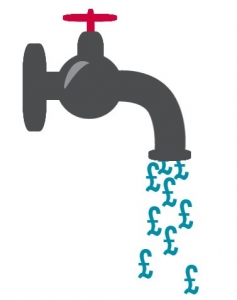- John Wellwood
- January 26th, 2015
It’s amazing how often I hear the words “we don’t have time”.
CEOs, senior managers and directors say things like “if only we had the time”, “I would love to have time to think about anything other than day to day issues”, “we are already at capacity we can’t do anything else” or any number of variations on this theme. But it has always struck me as a bizarre argument.
What happens when we ‘don’t have time’ to improve? Things get worse.
- The number of customers dissatisfied or going elsewhere is likely to increase as you cannot address the root cause of their concerns
- Our costs actually go up as fire-fighting is always more costly than carefully planned and scheduled improvements
- Processes tend to become less stable and increasingly out of control as everyone applies their own ‘quick fix’ to the problem
- Good staff, those who are a valuable asset, leave the business to find a more innovative or progressive place of work, leaving an increasingly passive or disengaged workforce behind
- Over time the cost of consultants and subcontractors increases as you struggle for forecast your needs correctly
- On time delivery deteriorates as the back log of work increases
- Quality goes down as we try to do more with an increasingly stretched budget and fewer resources. We check less, we accept poorer standards, we get more complaints, we win less business and so it goes on
Find the time
The only way to get out of a downward spiral of poor performance is to do something to get out of the loop.
It takes a good leader, a brave leader and a professional leader to, first of all, recognise this state and then to do something about it.
It might be, as is often the case, that you are so close to a problem that you can’t see it. You have no data or poor data so the problems are not evident.
All great leaders must take a step back from time to time and observe what is happening to their business. They must conduct a review; spend some time looking at things from customers’ and staff’s perspectives and take stock of where they are and where they have been.
Only then can they be in a position to know their current situation and do something about it. Those that do not are the very people we hear say “we just don’t have time for improvement”.
There are simple and quick ways to implement improvements in your business. You don’t have to spend thousands of pounds or train every member of staff. Just take a breath, talk to people like us so we can give you a hand to get out of the rut and actually start improving your business.


